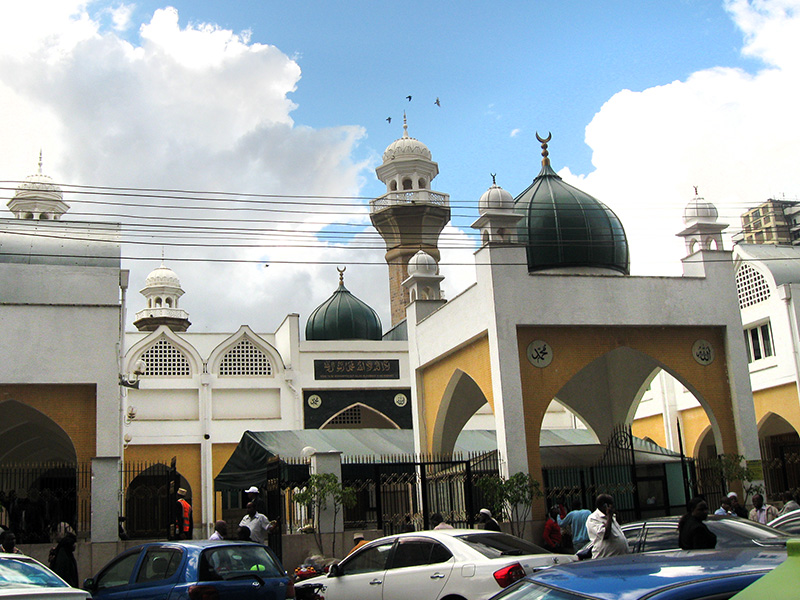NAIROBI, Kenya (RNS) The usual excitement that builds toward Ramadan has been tempered this year as food shortages and skyrocketing prices threaten to mar observance of the holy month for many East African Muslims.
Religious leaders fear the sharp rise in the prices of grains, cereals and other staple food is burdening people to the point that it may weaken their commitment to fasting.
[ad number=“1”]
“We have shortages of maize flour and where it is found, the price is quite high. Yet it is important at this time,” said Sheikh Juma Ngao, the chairman of Kenya Muslims National Advisory Council. “We urge the government to ensure the flour and other commodities are available and affordable.”
In March the government reported that nearly 3 million Kenyans were affected by the shortages. Over 16 million people are facing starvation in East Africa, in large part due to drought linked to climate change.
A hike in the prices of dates — believed to be Prophet Muhammad’s first food after breaking the Ramadan fast — particularly disappoints those who celebrate the holiday, which starts on May 27, depending on the sighting of the moon.
Muslims eat the fruit and water to break the fast, explained Hassan Isaak, a vendor who sells dates alongside copies of the Quran and other Islamic texts outside Nairobi’s Jamia Mosque, the seat of Islamic faith in Kenya.

Fresh dates for sale for Ramadan in 2013. Prices have risen sharply this year. Photo courtesy of Creative Commons/Omar Chatriwala
“They give a lot of energy. If you eat a few with milk, you don’t get hungry the whole day. But I am afraid many Muslims may find them unaffordable due to the high prices,” said Isaak as several Muslims carried dates into the mosque.
“The dates did not get a tax waiver like some of the other foods,” but it would boost Muslims’ spirits if the government granted one, Ngao said.
Muslims fast from eating or drinking from sunrise to sunset during Ramadan. Many stay awake late to break the fast and wake up early to eat before day break.
Rising prices reflect plummeting supplies caused by a severe drought that wiped out harvests, depleted water sources and killed livestock.
[ad number=“2”]
Prices of maize, sorghum and other cereals are near or at record levels in Ethiopia, Kenya, Somalia, South Sudan, Uganda and Tanzania, according to the latest Food Price Monitoring and Analysis Bulletin, which tracks the commodities.
In Kenya’s coastal region, Anglican bishop Julius Kalu of Mombasa said the high food prices are denying meals to ordinary people in his diocese, which has many Muslims who live side by side with Christians.
“The prices of maize meal have doubled. They are being told, they either take it or leave,” and many families are suffering because they simply can’t afford food at that cost, said Kalu.
“It is essential that the government does something urgently to bring down the price of commodities during this month of Ramadan,” added the bishop.
[ad number=“3”]
As Muslims are expected to give to charity during Ramadan, Kalu said Christians also will offer aid to the hungry in the region.
“We shall distribute it this month as part of charity,” he said. “We are in dialogue with the Muslims and we shall move together with them to preach peace and tolerance.”
Meanwhile, the government announced that it will lift a curfew imposed last year in northern Kenya and Lamu in the southeast, following frequent attacks by al-Shabab, the Somalia-based al-Qaida affiliate in East Africa. The action will make it easier for Muslims to pray and celebrate during Ramadan.
Kenyan President Uhuru Kenyatta, who is Christian, also gave 36 tons of dates to be distributed to poor Muslims during the holiday in the nation.





